
Microwave sizes guide: How to measure for the perfect fit
Microwaves are masters of convenience and come in different types designed to fit your kitchen and cooking style. Countertop, over-the-range (also known as microwave hood combinations) and built-in microwaves come in a range of sizes and capacities to choose from. Whether you're remodeling, replacing or just upgrading to the latest innovations, it’s important to know how much space you have available so you can get the right fit the first time. Read on to learn how to measure a microwave and learn more about different microwave sizes.
What are standard microwave sizes?
Microwave sizes vary by type, but there are some standardized dimensions you can usually count on. Most over-the-range microwaves are roughly 30" wide, 17" high and 15" to 18" deep with a closed door. Built-in microwaves typically match standard cabinet dimensions of 24", 27" or 30" wide, and countertop microwaves come in sizes from compact to extra large.
Microwaves are measured by exterior width, height, depth and interior capacity. The interior capacity, measured in cubic feet (cu. ft.), is sometimes listed in the product name. Exterior sizes vary by microwave type, but are relatively standard from model to model.
Microwave sizes comparison chart
There are a variety of microwaves you can choose from with different dimensions. To get a general idea of what’s available, browse through the typical microwave sizes chart below to find the right dimensions and capacity for your kitchen’s space.
| Type of microwave | Height (In.) | Width (In.) | Depth (In.)1 | Capacity (Cu. Ft.) |
|---|---|---|---|---|
| Countertop | 12" - 15" | 21" - 25" | 16" - 20" | 1.0 - 2.2 cu. ft. |
| Compact | 10" - 11" | 15" - 19" | 12" - 16" | 0.5 - 0.9 cu. ft. |
| Over-the-range | 17" | 30" 24" (compact) |
15" - 18" | 0.8 - 2.1 cu. ft. |
| Low-profile | 10" | 30" | 18" | 1.1 cu. ft. |
| Built-in | 17" - 22" | 24", 27" or 30" | 20" - 25" | 1.0 - 2.2 cu. ft. |
1. Microwave depth with door closed.
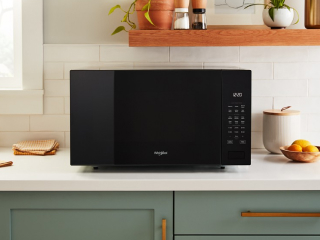
Need help finding a new microwave?
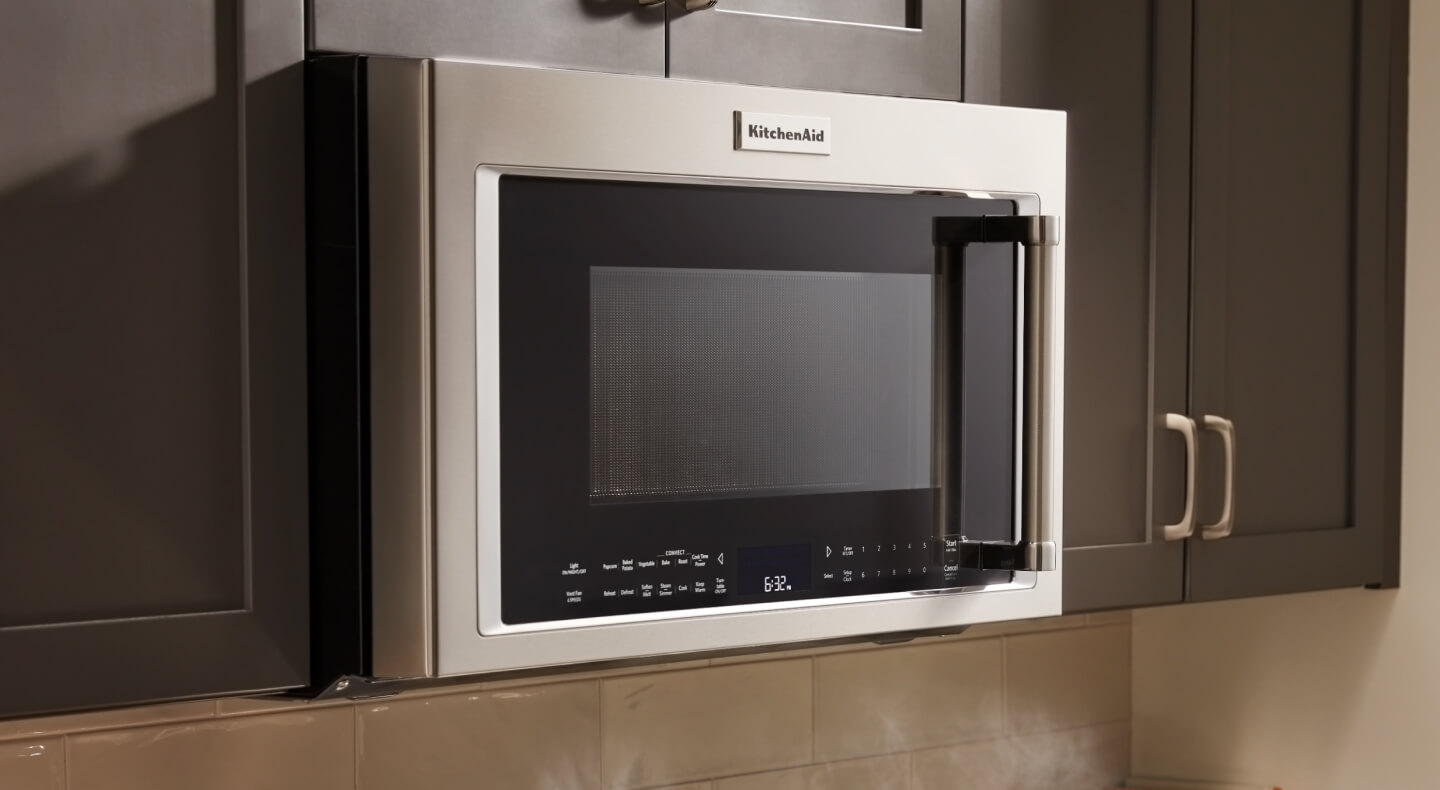
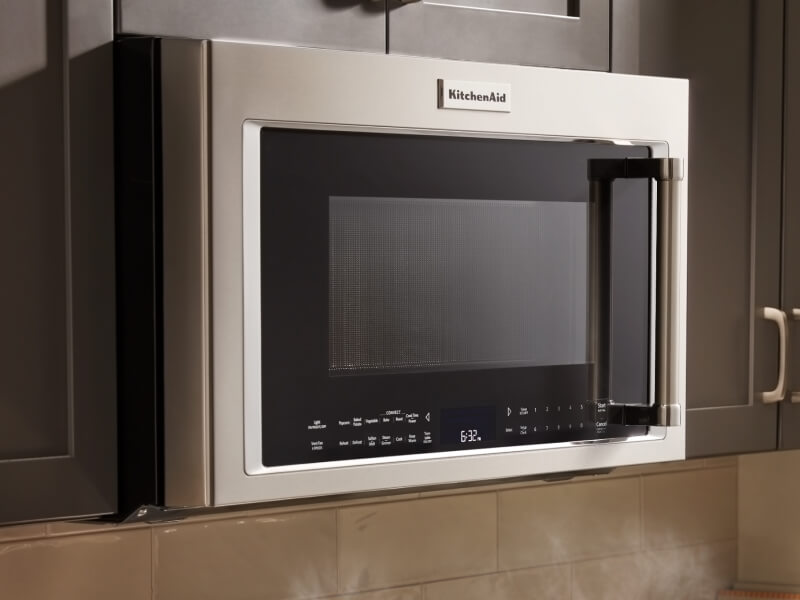
Exploring microwave types and dimensions
If you’re not sure which microwave configuration suits your kitchen best, the information below can help you narrow it down. Discover standard capacities and the typical width, height and depth ranges for common microwave configurations, including countertop, compact, low-profile, built-in and over-the-range models.
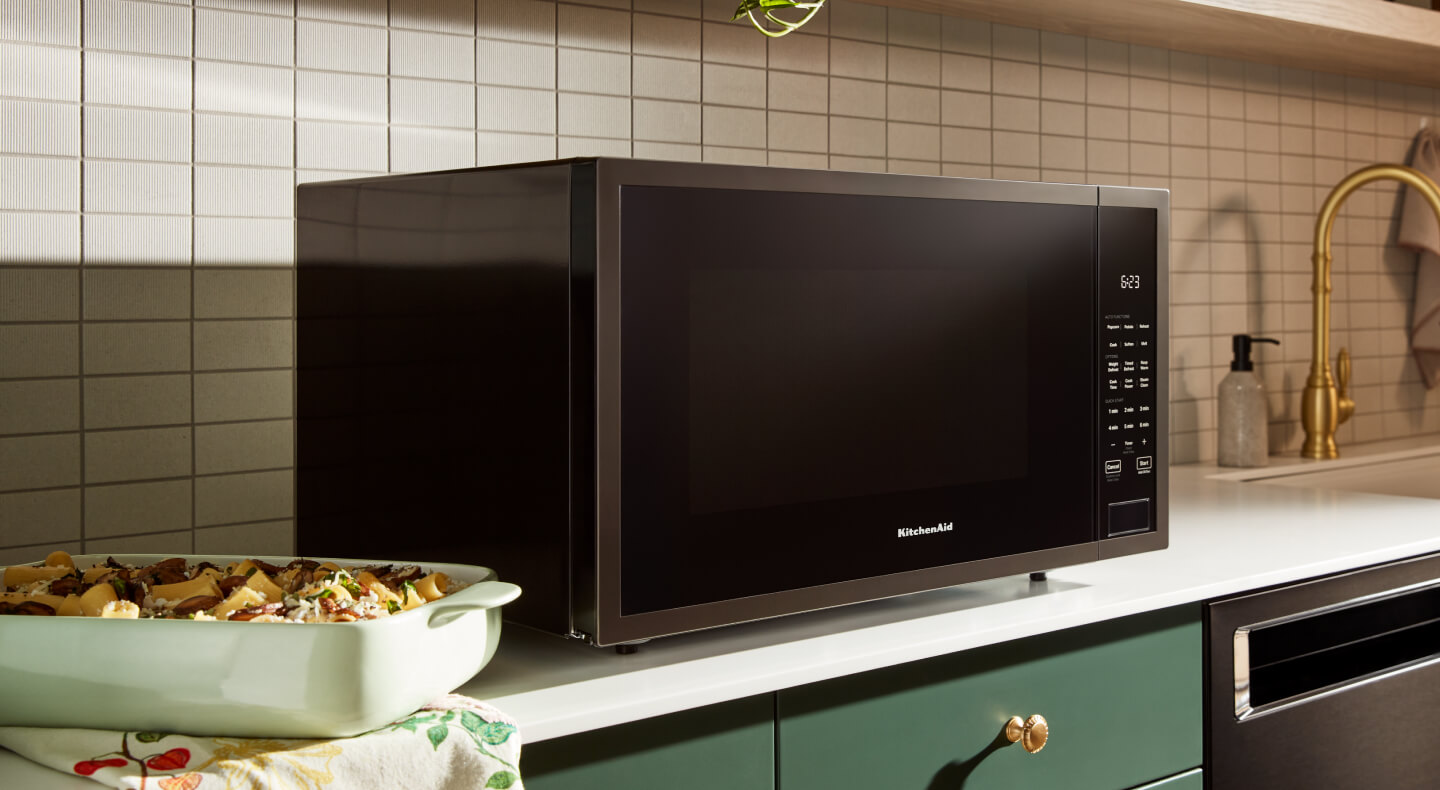
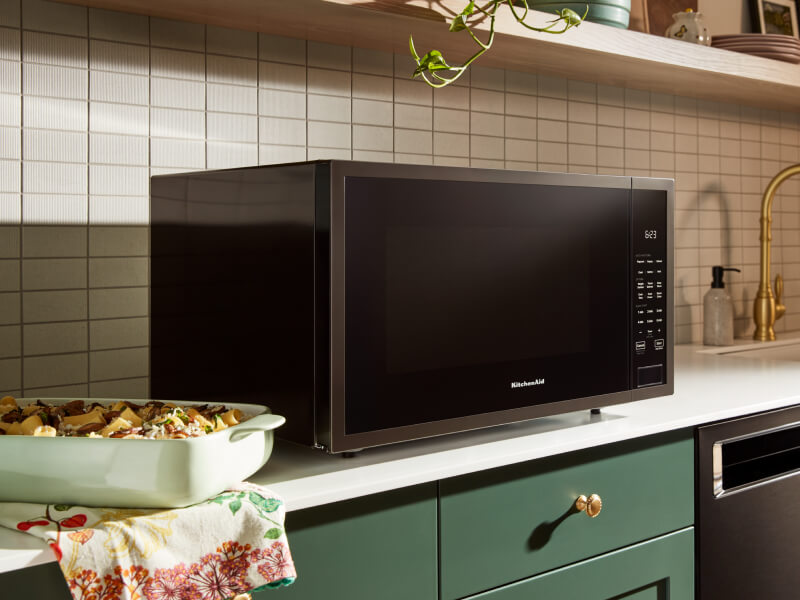
Countertop microwave dimensions
A countertop microwave gives you extra flexibility since it can be placed nearly anywhere in your kitchen or installed in cabinetry with a trim kit for ease of access. It can also be a great option for renters who are unable to install appliances. Countertop microwave dimensions usually include the following:
Capacity is often from around 1.0 to 2.2 cubic feet.
Widths can range from about 21 to 25 inches.
Height is usually around 12-15 inches.
Closed-door depths range roughly from 16 to 20 inches. Open-door depths range from roughly from 27 to 39 inches.
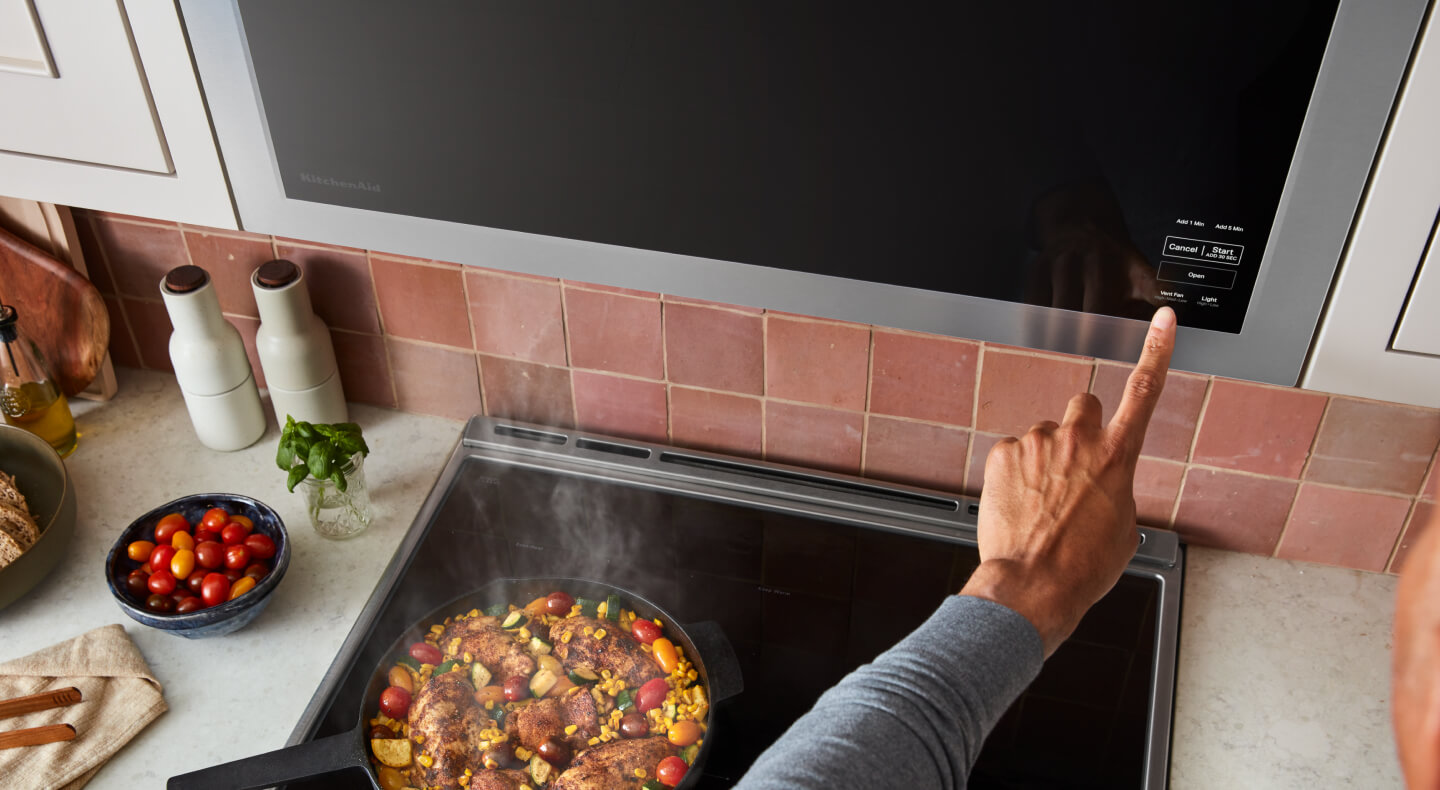
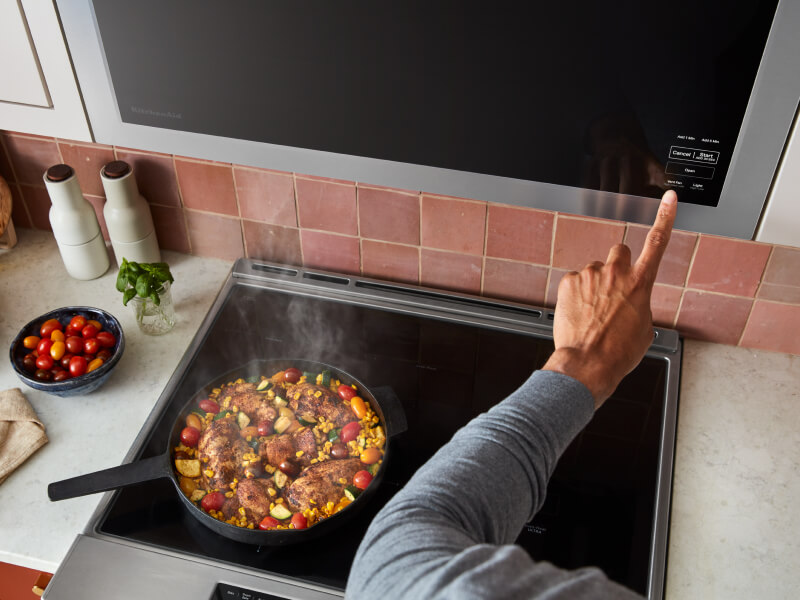
Compact microwave dimensions
A compact microwave is slightly smaller in size than a standard countertop microwave, making it ideal for kitchens with very limited countertop space. Compact microwave dimensions usually include the following:
Capacity is usually around 0.5 to 0.9 cubic feet.
Widths can range from 15 to 19 inches.
Heights often measure from 10 to 11 inches.
Depth is measured with the door closed and open since you’ll need to have enough space for the door to swing fully out. Closed-door depths range from roughly 12 to 16 inches. Open-door depths range from roughly 23 to 30 inches.
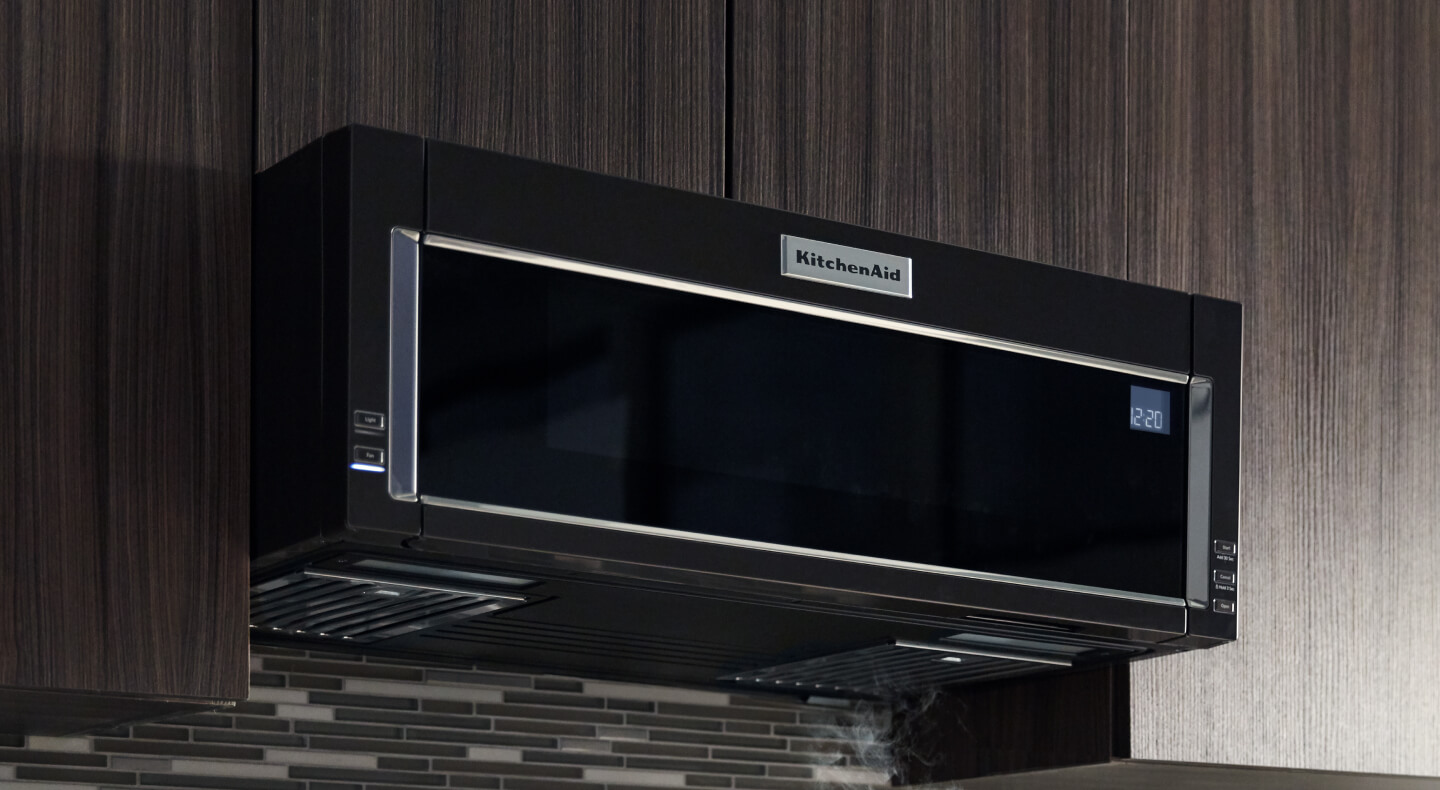
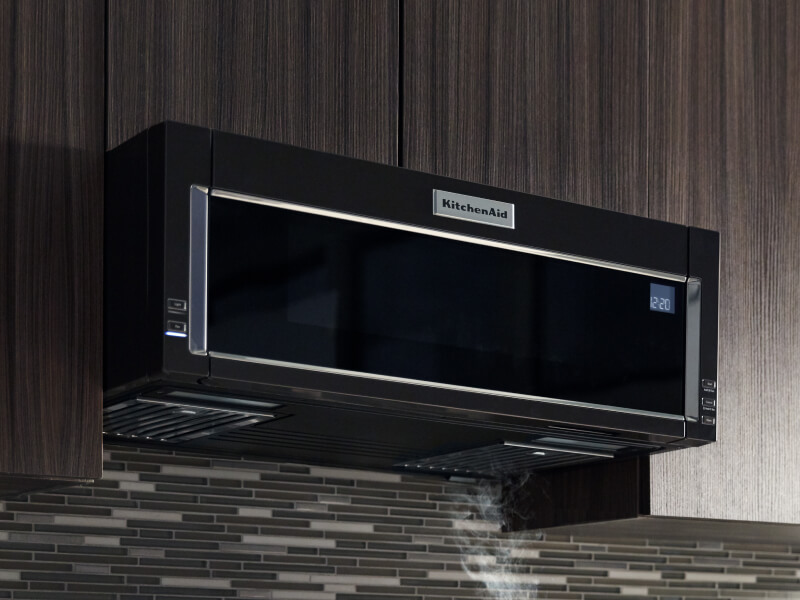
Over-the-range microwave dimensions
Over-the-range microwaves are becoming the more common choice for today’s kitchens. They’re sometimes called microwave hood combinations since they offer convenient cooking performance and double as a hood vent, capturing smoke, grease and odors coming off the cooking surface below. Over-the-range microwave dimensions usually include the following:
Capacity is usually around 0.8 to 2.1 cubic feet.
Widths will all be roughly 30 inches to match the standard width of the range below and the standard cabinet cutout width where the microwave will be installed. You may find some compact models measuring around 24 inches wide as well.
Heights are usually around 17 inches.
Closed door depths range from 15 to 18 inches. Open-door depths range from 42 to 45 inches. Because over-the-range microwaves all have similar widths, the open door depths will also be similar.
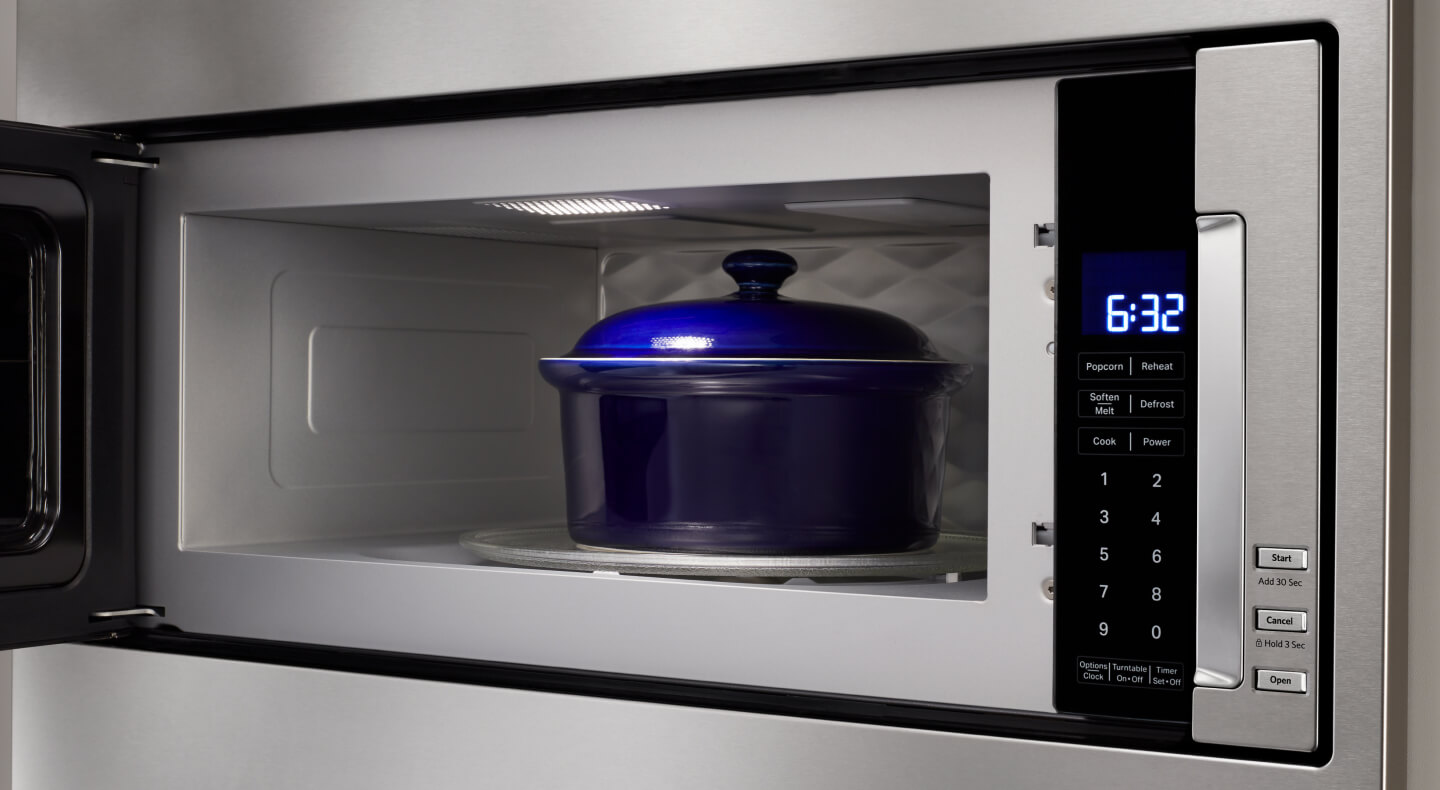
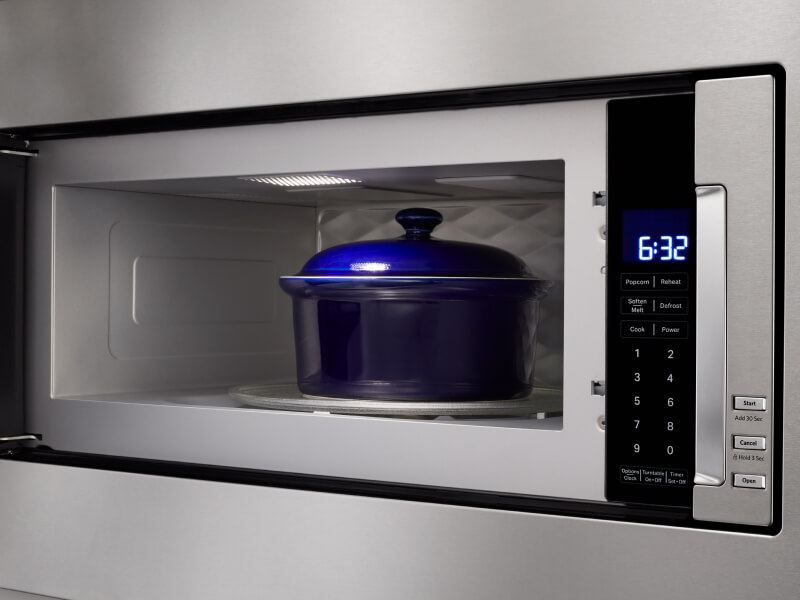
Low-profile microwave hood dimensions
A low-profile microwave hood offers a streamlined design to give you more space above your cooking surface without compromising space inside for the items you normally place in a microwave. Low-profile microwave hood dimensions usually include the following:
Capacity is around 1.1 cubic feet of space, a little smaller than a standard over-the-range microwave, but still large enough to fit regular-sized dishes.
Width is the same as a standard over-the-range microwave, roughly 30 inches to match the width of the oven below.
Height, at a little over 10 inches, is shorter than a standard over-the-range microwave to give cooks more room to create on the stove.
Depths will be around 18 inches closed and 48 inches open.
Looking for a sleek design, too? Check out stainless steel and black stainless steel models.
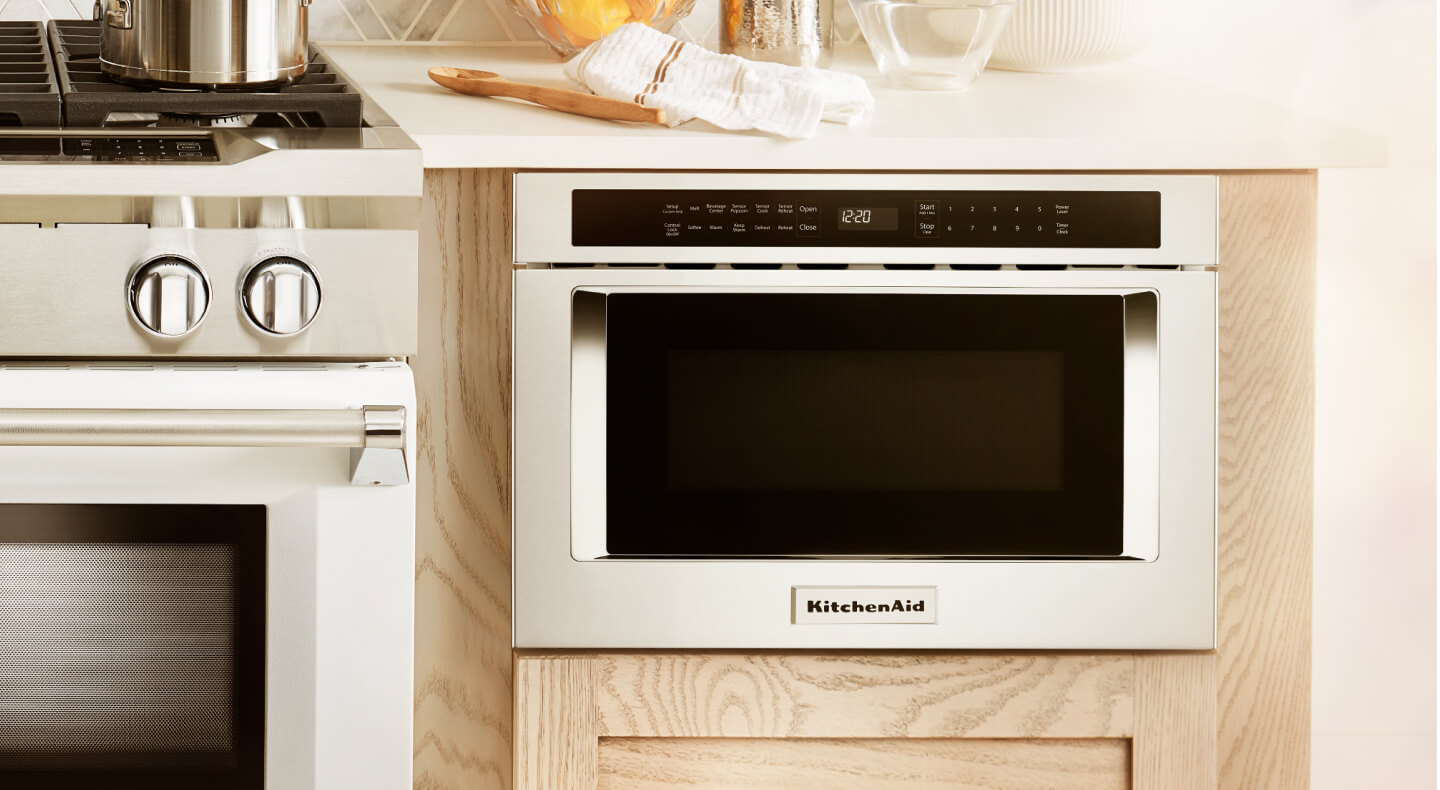
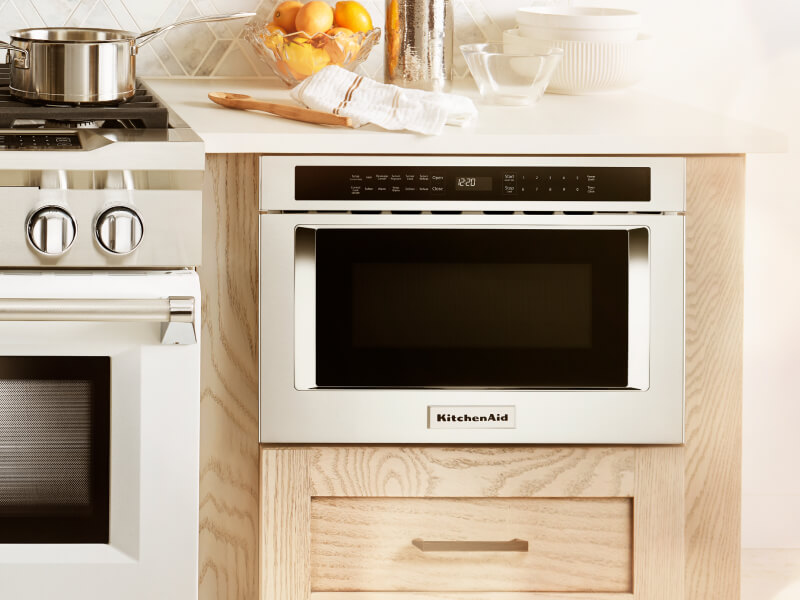
Built-in microwave dimensions
Built-in microwave ovens are installed directly into pre-existing upper or lower cabinetry, opening up valuable counter space and bringing clean lines to the kitchen. Many feature drop down doors that allow them to open like a standard oven, though models with a side swing door or a slide-out drawer are also available. Built-in microwave dimensions usually include the following:
Capacity can range from 1.0 to 2.2 cubic feet, with most landing between 1.2 to 1.6 cubic feet.
Widths align with standard cabinet widths, usually 24, 27 or 30 inches.
Height typically ranges from 17 to 22 inches.
Depths range from roughly 20 to 25 inches with the door closed and 30 to 35 inches with the door open. Built-in microwaves can be installed in a cabinet or under a counter. Learn how to install a built-in microwave with our comprehensive guide.
If a built-in microwave seems like the right fit for your space, explore our built-in microwave buying guide for more information.
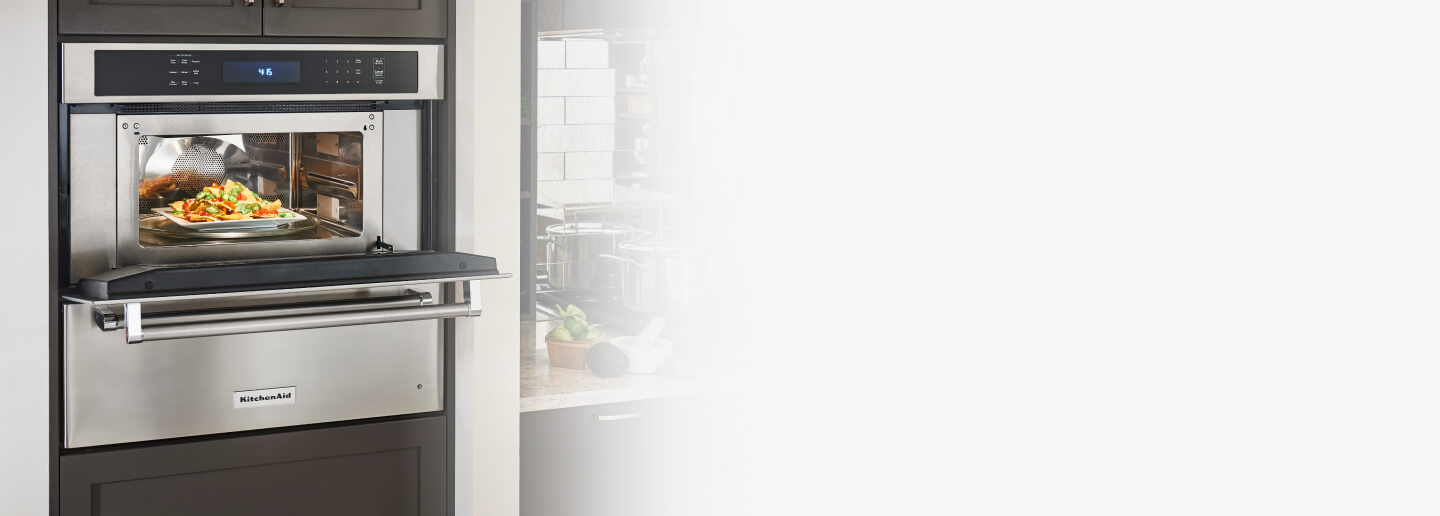
KitchenAid® built-in microwaves
Seamless integration and professional design
Whether you need to reheat, steam or fully cook a meal, KitchenAid® built-in microwaves provide a versatile cooking space without taking up your counter space
How to measure for a new microwave
The steps of measuring for a new microwave can vary depending on which type you plan to install. You’ll need height, width and depth measurements for your countertop space or microwave cutout, and may have to consider additional factors like ventilation space or space between appliances to get the right fit. Discover measurement steps for unique microwave types below.
How to measure countertop microwave dimensions
Measuring your countertop for a new microwave is an important step in finding the right fit for your kitchen. While it’s always useful to measure the width, depth and height of the space you have to work with, factors like ventilation space, space between appliances and the microwave door’s swing radius should also be taken into account when taking microwave measurements.
1. Remove your current microwave
Clear your countertop of any obstructing objects or appliances in the area you’d like to place your new microwave.
2. Measure for microwave width
Use a measuring tape to measure the maximum width of countertop space you’d like your microwave to occupy, keeping in mind that there should be at least two feet of space between the microwave and the range or cooktop.
3. Measure for microwave depth
Measure the distance between the wall behind the countertop to the edge of the counter. You’ll need to account for an extra inch of ventilation space between the microwave and wall behind it, as well as 3 inches of space from the edge of the open microwave door and the edge of the countertop to help avoid the potential for tipping.
4. Measure for microwave height
Measure the distance between the bottom of the cabinets and the countertop surface below, taking into account any cabinet trim that extends below the base of the cabinet.


How to measure over-the-range and built-in microwave dimensions
You can measure an over-the-range or built-in microwave space in a few simple steps, especially if you don’t need to remove an existing model. If the space is empty, measure the width (cabinet to cabinet), depth (wall to cabinet front), and height (top to bottom of the cabinet). Learn more about the process below.
1. Remove your current microwave
If you’re replacing an existing model, your first step is to take out your current over-the-range or built-in microwave. If you plan to install a new one for the first time, measure the area where you’d like to install it.
2. Measure the microwave cutout width
Use a tape measure to measure the width of the cutout from cabinet to cabinet. Most standard cutouts are 30 inches wide.
3. Measure the microwave cutout depth
Measure the cutout depth from the wall to the front of the cabinet, excluding the door. Most cabinets will be 24 inches deep.
4. Measure the microwave cutout height
Measure the cutout height from the top of the cabinet to the bottom. If you’re installing an over-the-range microwave, it’s okay for it to drop below the cabinets as long as you retain 30 inches from the bottom of the microwave to the top of the stove.
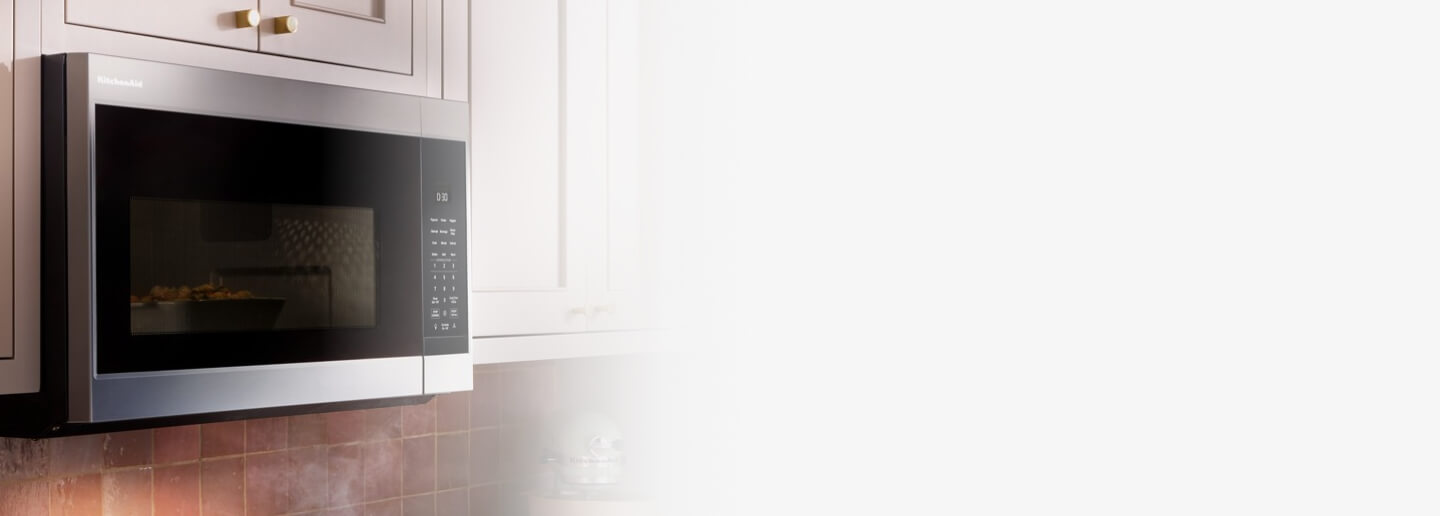
KitchenAid® microwaves
Maximize your cooking options
From built-in and over-the-range to countertop microwaves, KitchenAid brand has microwaves that complement your kitchen and cooking style

KitchenAid® Hardware Accessory Kits
Curate the colors and textures that move you
From bold Black Ore to the inviting warmth of Bronze, mix and match handles and knobs to refresh your appliances and bring new energy to your kitchen

